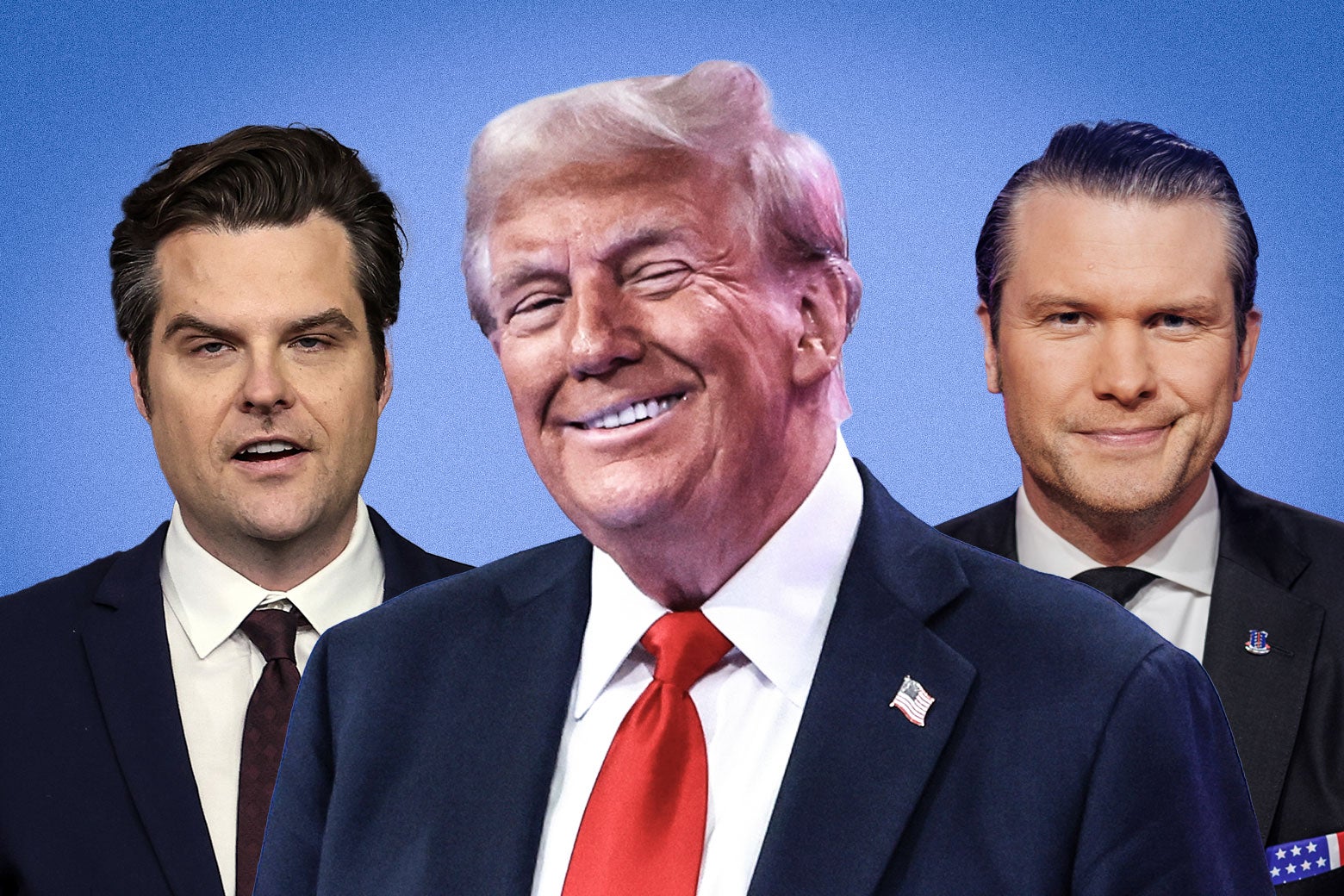Entertainment
Trump’s Cabinet Picks Reveal Awful Truth

Donald Trump’s Cabinet Choices: A Look at Accusations of Sexual Misconduct
As Trump’s second term approaches, a glaring trend emerges within his cabinet selections—many are individuals who have faced serious allegations of sexual abuse. The #MeToo movement, while aiming to hold powerful figures accountable for sexual harassment and misconduct, appears to have inadvertently emboldened those on the right to act with increased audacity. This concerning reality is now evident in the nominations announced by President-elect Trump, with several men in his circle having been accused of various forms of sexual misconduct, alongside Trump himself, who has been found liable for sexual abuse in a court of law.
The essence of the conservative attitude seems to suggest that if accusations of sexual misconduct are rampant, then the individual histories of such allegations lose their importance. Within this framework, MAGA Republicans seem to be experiencing their own version of #MeToo—one that disregards the implications of such accusations and turns accountability on its head. This normalization, where being accused of sexual harassment or assault is no longer a disqualifying factor, shows a stark departure from the accountability that the movement sought to secure.
The list of allegations against Trump’s cabinet nominees is distressing. For instance, Matt Gaetz, chosen as attorney general, is under investigation by the Justice Department concerning sex trafficking involving a minor. Additionally, he faces scrutiny from the House Ethics Committee for a range of alleged misconduct, including drug use and the inappropriate sharing of intimate photos with colleagues. It’s troubling that as the committee was finalizing its report about Gaetz, he was simultaneously nominated for a prominent role.
Then there’s Pete Hegseth, selected for the secretary of defense position. Allegations against him include a payout made to settle claims of rape made by a woman he met at a Republican event—Hegseth insists the encounter was consensual and that the payment was a protective measure for his career.
Even tech mogul Elon Musk, proposed to co-manage a new Department of Government Efficiency, has faced a lawsuit citing the creation of a sexually hostile workplace, with accusations of treating female employees as objects. Robert F. Kennedy Jr. was mentioned for allegations of groping a babysitter, hinting at a troubling history of womanizing and irresponsible behavior.
Even among Trump’s female nominations, the allegations persist. Linda McMahon, nominated for secretary of education, stands accused in a lawsuit regarding her alleged knowledge of abuse occurring at WWE, which she co-founded.
Of course, the central figure in this narrative is Trump himself, who has faced multiple allegations of sexual misconduct from several women. He was recently ordered by a jury to pay over $80 million for the abuse and defamation of E. Jean Carroll, a case that brings his sordid history to the forefront. Trump also faced criminal charges related to falsifying business records connected to hush-money payments to Stormy Daniels.
The implications of these selections are profound, sending a disturbing message about the administration’s stance on accountability regarding sexual misconduct. The ongoing conversation around #MeToo, sparked by outrage at Trump’s behavior and that of other powerful men, demonstrates the tension between cultural reckoning and the apparent normalization of abusive behavior in certain political circles.
An unsettling trend emerges: the very fabric of the #MeToo movement is being weaponized to undermine women’s rights and claims to bodily autonomy. The recent resurgence of conservative rhetoric echoes a dangerous mantra—one that merges attacks on reproductive rights with the dismissal of women’s autonomy over their own bodies. The phrase “Your Body, My Choice” cleverly subverts the longstanding pro-choice slogan, drawing dark parallels between the imposition of pregnancy and sexual assault.
Currently, Trump enters his second term with the unique distinction of being both a convicted felon and a president found liable for sexual abuse—variables that dramatically illustrate the anti-feminist undertones permeating his political landscape. As he builds a cabinet filled with men accused of serious offenses, the question looms: Are these individuals reflecting a broader cultural shift that diminishes the potency of accountability for sexual misconduct?
The fallout from this is stark; men facing accusations of abuse no longer face the consequences they once would have. The revelations of #MeToo brought to light the extensive nature of sexual violence against women, yet the reactionary response seems to dilute the impact of these accusations, normalizing what was once considered unacceptable behavior.
In conclusion, the selections for Trump’s Cabinet and their tied allegations form a complex tableau—one that not only mirrors the ongoing battle for women’s rights but also exposes the deep-seated misogyny that remains prevalent within certain power structures. The fight initiated by #MeToo is far from over, and as we witness this unfolding situation, it becomes increasingly crucial to hold those in positions of power accountable for their actions, regardless of political affiliation.
